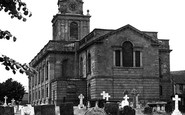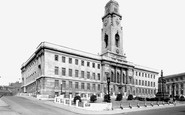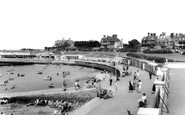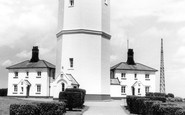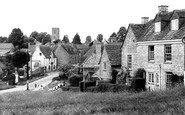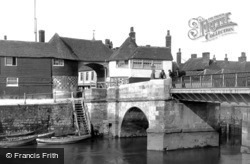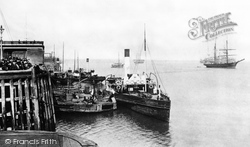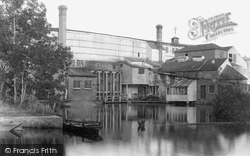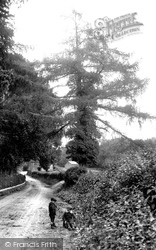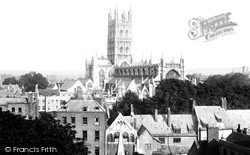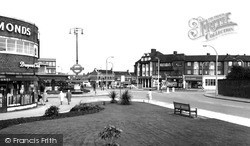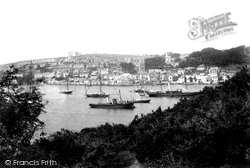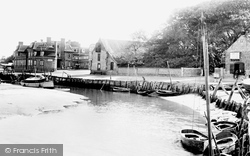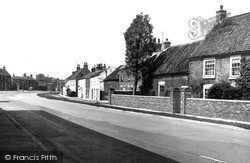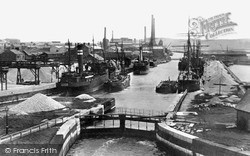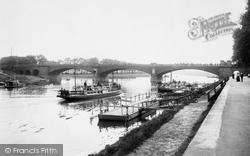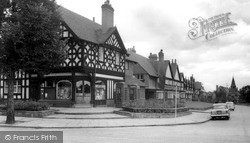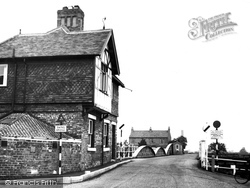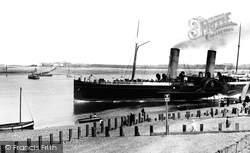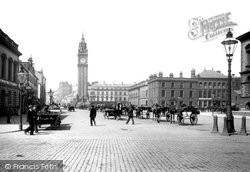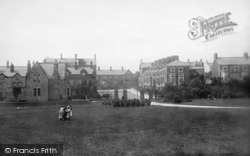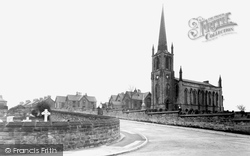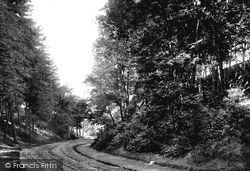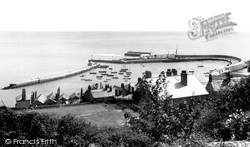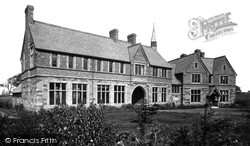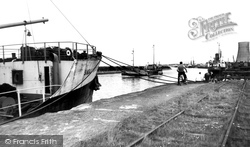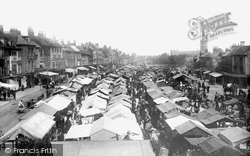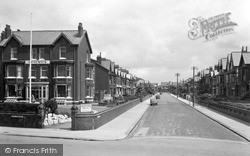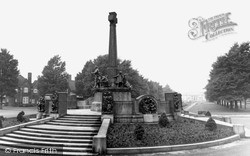Places
Sorry, no places were found that related to your search.
Photos
Sorry, no photos were found that related to your search.
Maps
670 maps found.
Books
4 books found. Showing results 985 to 4.
Memories
1,789 memories found. Showing results 411 to 420.
Barnsley Town Hall 1955 The Year I Started To Work There.
I was two weeks short of my 16th birthday, when I started work in the motor tax office which was situated in Barnsley Town Hall. Although we were employed by the Borough Treasurer's Deptment, ...Read more
A memory of Barnsley in 1955 by
Netherthong Public Houses Part 2
This is the second part of my ongoing research into the public houses in Netherthong. There is reference to two inns in Thongsbridge in 1853 - the Rose & Crown publican Hiram Earnshaw, and the Royal Oak with ...Read more
A memory of Netherthong by
Westgate On Sea Holidays In The 1960s
My parents took myself and my late brother to Westgate on Sea almost every Easter from 1959 to 1971. Living in west London we caught the 2.40pm train from Victoria, arriving at Westgate on Sea about ...Read more
A memory of Westgate on Sea by
Son Of Sgt Bruce Krrc
My father was stationed at Chisledon Camp from 1939 to 1942. Living in Littlehampton on the south coast, threatened with invasion, my mother rented the end thatched cottage of the row of cottages which face the railway line ...Read more
A memory of Chiseldon in 1940 by
Wartime Memories Of Hay Part Two
Memories of Hay during the Second World War: Part Two. (Continued from Part One) Thoughts of 'Dad's Army' remind me that the local Home Guard occasionally used Forest Road for some kind of exercise. I've dim ...Read more
A memory of Hay-on-Wye in 1940 by
The Delta
This memory of 1961, and me and me pal Wes Coulthard started work at the Delta Rolling Mills (this was over Scotswood Bridge towards Blaydon, left along the river by the Skiff Inn). It was hard work but the dosh was better than other ...Read more
A memory of Newburn in 1961 by
A Walk From Shotgate Baptist Church To Wick Lane
My name is Kevin Mears, I lived in Wickford from my birth in 1958 until I got married in 1980. I shall describe my memories of Wickford as a couple of walks around the Wickford area. My first walk ...Read more
A memory of Wickford by
Port Regis
My sister and I were both at Port Regis for Delicate Girls between 1957 -9 approx. Various memories (good & bad). Very hard to find a site that is just for this convent. Seems to split between a Broadstairs site. Various names crop up but none that I recognise.
A memory of Broadstairs in 1957 by
Charlbury Railway Station
I well remember been driven to the station to meet a train that was carrying at least two hundred head of cattle destined for Ditchley Mansion. As a young man in those days, with five other men we drove the animals to the ...Read more
A memory of Charlbury in 1954 by
Captions
1,058 captions found. Showing results 985 to 1,008.
Originally the first of the Cinque Ports, its Saxon harbour had silted up by the late 14th century, ending its role as the chief place of embarkation for the Continent and as England's premier naval
Powered by two sets of inverted triple expansion engines, fed by eight boilers and 24 furnaces, the Eclipses could exceed 19-20 knots for short periods.
Shortly afterwards it was taken over by Henry Fourdrinier, one of the most innovative of local paper makers, but the cost of development broke him, and by 1808 he was bankrupt.
The church is a short distance from the Nower, another one of Dorking's parkland areas.
Within a short while, it was claimed that the King's tomb was a place where miracles were happening; this put Gloucester well and truly on the pilgrim trail.
Behind the high brick wall to the extreme right of the photograph is Southgate House of the late 18th century, built in the form of a neo-classical villa by Samuel Pole; a short distance along the Bourne
The moored steam and sailing vessel, off the tug's port bow, denotes a class of ship rapidly becoming popular at the turn the century, although incidents were recorded of sparks from the funnel
Trading from its port ended in 1922, and this heralded the start of Blakeney as a tourist centre, specialising in boating, fishing, walking, painting, bird-watching and nature study.
Nearby Patrington Haven, once a small port, was overlooked once Sunk Island was enlarged. The former Patrington RAF wartime station is now a popular caravan and leisure park.
Runcorn was also a coal port, handling traffic from Lancashire and Staffordshire pits.
Nottingham was now less than a day's journey away from the port of Hull, which greatly increased its prosperity.
Port Sunlight was the dream of William Lever, a man who believed that there was good in everyone; only the best would do for his workers and employees.
Cawood was once a busy port on the River Ouse with boat building and a ferry.
The U-boat might well have been travelling along with only its conning tower showing above the surface, as it was pushed under by her port paddle-wheel.
Its quays were once the heart of Belfast the port, and there is no doubt that the remains of Chichester Quay on the right and Hanover Quay on the left will be found below the cobblestones.
The banks of a short stretch of Milewater had once provided clay for bricks, tiles and a pottery.
Rockingham also built a short canal to link with the Dearne and Dove Canal.
A short- lived plan to reopen the camp three years later ended in bankruptcy.
One of the premier ports of England in the Middle Ages, Lyme had long been declining in importance, though it was still important enough to be rebuilt in Portland stone after devastating damage
Waterhouse, an eminent Victorian architect, most famous for designing the Natural History Museum in London, to design the new Grammar School buildings and the headmaster's house (right), seen here shortly
Ellesmere Port was a favourite dock for timber from Russia and Scandinavia; from here it was moved all over the north for house building.
This famous east coast resort has been a flourishing fishing port since the Conqueror's times. For centuries it suffered continual silting.
After the new Cut Channel was made, gas buoys were used, and the Ribble Port Authorities cut down the timber lighthouse. The first lighthouse of stone shone out before St Anne's had been built.
The war memorial, unveiled in 1921, was designed by Sir William Boscombe John, and stands on the site of Port Sunlight's old gymnasium.
Places (0)
Photos (0)
Memories (1789)
Books (4)
Maps (670)



